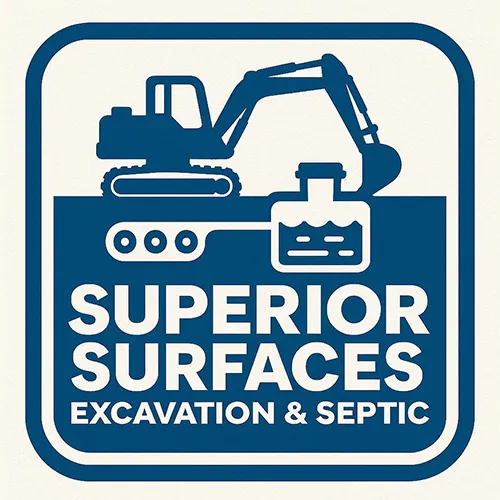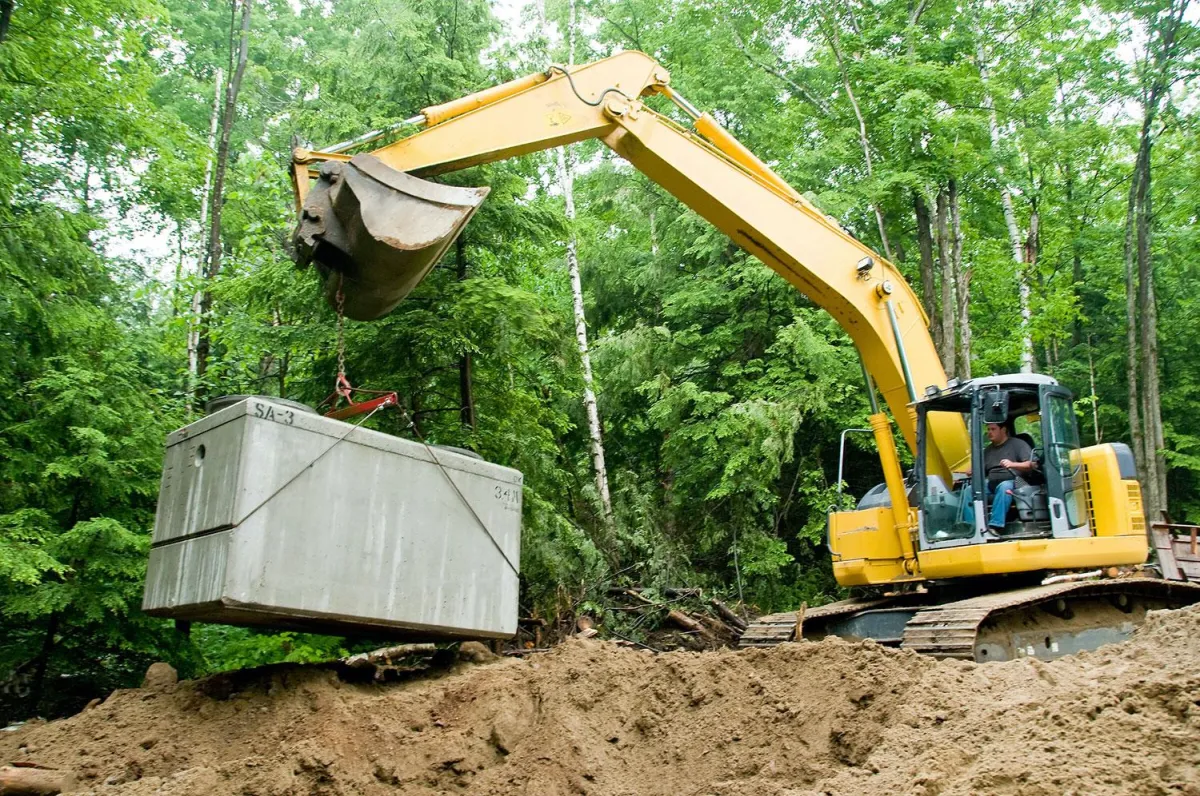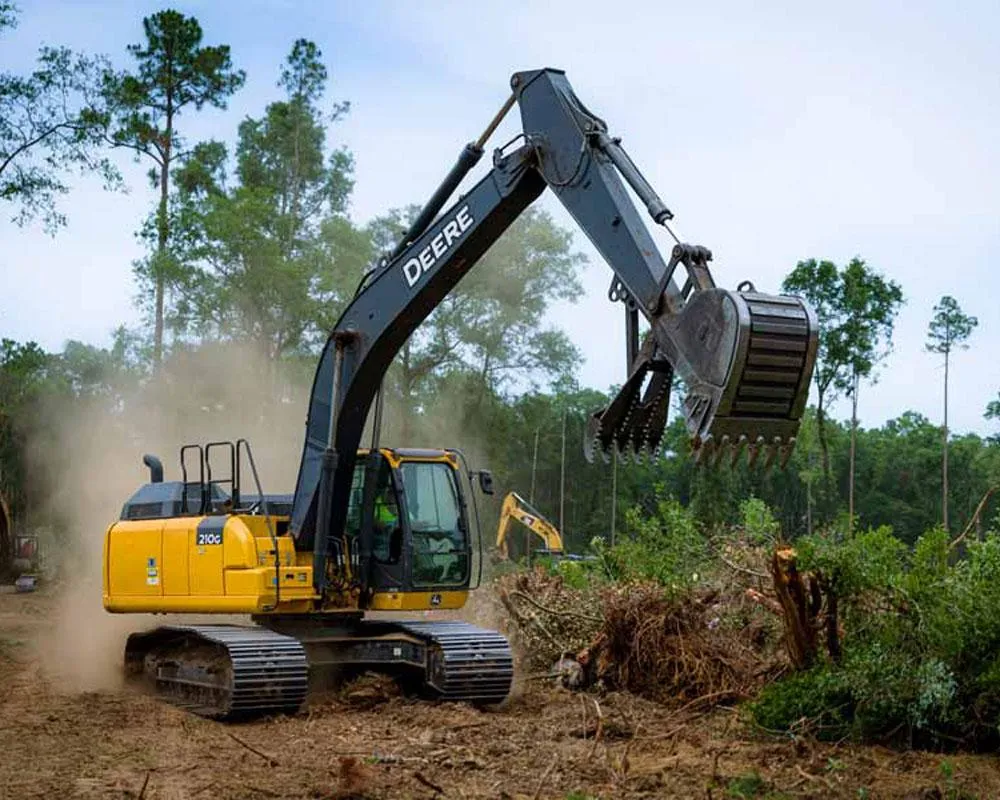
Serving Michigan counties: Macomb, St Clair, Wayne, Oakland, Genesee, and Tuscola Counties
Excavation and Septic Company near Casco Township in St. Clair County, MI
Superior Surfaces LLC is Committed to superior quality and results!

AVOID COSTLY MISTAKES:
Do NOT hire an excavating contractor without first reading our free guide:
The ULTIMATE Excavation & Septic "Success Guide."

Excavation and Septic Company near Casco Township in St. Clair County, Michigan: What We Do
When you search for help with digging, drainage, foundations, or a new septic system, you want plain answers, realistic timelines, and a crew that respects your property. That’s exactly what a qualified excavation and septic team provides. Their job is to prepare your land so every structure, pipe, and tank sits on stable ground and performs the way it should—from day one.
How Can We Help?


Core Excavation Services Explained
A modern excavation crew handles much more than moving dirt. Typical tasks include site clearing, grading, trenching for utilities, driveway and culvert installation, drainage shaping, and foundation digs. Precision matters. The right team reads soils, understands groundwater, and uses laser-guided equipment to cut, fill, and compact to the plan—so your concrete, utilities, and septic components install without headaches later.
Septic System Services in Everyday Terms
A septic specialist evaluates soil percolation, seasonal water tables, and home usage to design and install a system that fits your lot. That can include tanks, distribution boxes, gravity or pump lines, drain fields, chambers, risers, and effluent filters. They also handle replacements, upgrades, and drain field rejuvenations when older systems fail. Good installers think long-term: they position components for service access, winter resilience, and landscape compatibility.
Why Choose an Excavation and Septic Company near Casco Township in St. Clair County, Michigan
Local knowledge pays off. Crews working near you know typical soil textures, frost depths, and township permitting paths. That means fewer surprises, better drainage choices, and a smoother inspection process. It also keeps travel time down, which can reduce mobilization costs and make emergency response more realistic when you need it most.
The Benefits of Hiring a Single Team for Both Disciplines
Hiring one provider for excavation and septic streamlines your project. A unified plan reduces finger-pointing between contractors, compresses schedules, and ensures trenching, grading, and septic placement are coordinated to protect slopes, driveways, and trees. You get one point of contact, one safety plan, and one warranty you can reference if anything needs attention.
See Our Excavation and Septic

✔️ Commercial Excavation
✔️ Residential Excavation
✔️ Basement Excavation
✔️ Demolition
✔️ Large Pond Construction
✔️ Small Pond Construction
✔️ Dozer Work
✔️ Forestry Mulching
✔️ Grading, Lot Clearing
✔️ Retaining Walls
✔️ Concrete Flatwork - Driveways, Sidewalk, Foundations
✔️ Foundation Repairs
✔️ Full Site Preparation
✔️ Foundation Repairs
Quality Services Launched FAST!

✔️Septic Install and Repair
✔️ Septic Inspections
✔️ Septic Installs Traditional Systems
✔️ Septic Tanks - Plastic/Poly
✔️ Septic Tanks - Concrete
✔️ Drain Field Replacement
✔️ Drainage Systems
✔️ Aerobic Treatment Systems
✔️ French Drains
✔️ Trenching
What Are You Waiting For?
What It Looks Like to Work Together—Step by Step
Discovery call: You explain your site, goals, timeline, and budget. The contractor shares initial guidance and gathers maps or surveys.
Site walk: They verify access, slopes, soil conditions, trees, utilities, and setbacks. Photos and notes help build a clear scope.
Proposal: You receive a written scope, timeline, and itemized cost. Transparent proposals show what’s included, what’s excluded, and how contingencies are handled.
Permits and layout: Your team coordinates with the township and marks utilities. Stakes go in for cuts, fills, tanks, and drain fields.
Execution: Clearing, rough grade, trenching, and compaction lead into septic installation. Crews keep the site tidy and communicate daily progress.
Inspections: Required checks are scheduled and passed before backfilling critical components.
Final grade and handoff: The site is shaped for drainage and safety. You receive as-built notes, care instructions, and a path for future maintenance.
Design and Drainage: The Silent Protectors of Your Investment
A flawless foundation dig can still fail if drainage is ignored. Smart grading moves water away from buildings and driveways, protects the drain field, and reduces freeze-thaw damage. Your team can add swales, downspout extensions, or French drains where needed so stormwater has a safe path across the property.
Safety, Compliance, and Communication
Excavation involves heavy equipment, open trenches, and underground utilities. You should expect a documented safety plan, utility locates before digging, and daily briefings that keep everyone aligned. Clear communication is what prevents surprises. Good teams share what they’re seeing in the soil and how they’re adapting the plan to keep results on target.
Materials and Equipment that Make a Difference
Quality tanks, properly graded stone, fabric, and pipe sizing make systems last. Laser levels, compactors sized for lift thickness, low-impact track machines, and dewatering pumps ensure the installation meets spec even when weather turns. The point is simple: the right tools protect your budget and your yard.
How to Prepare Your Property Like a Pro
Before work begins, mark trees to save, flag irrigation heads, move vehicles and trailers, and clear access for trucks. If you have pets or livestock, plan temporary fencing. Share any well locations, private utilities, or unique site risks. Little steps up front save hours once equipment rolls in.
Cost, Timelines, and What Drives Both
Pricing reflects soil conditions, access, haul distances, disposal needs, groundwater, and the system type your site can support. Timelines vary with permitting, inspections, and weather windows. You’ll get the best value when the scope is clear, decisions are made promptly, and the contractor can sequence tasks without downtime.
Maintenance Mindset from Day One
Great installations anticipate service. Ask for risers to grade, effluent filters you can reach, and a clear path for future pumping. Protect your drain field: no vehicles, no sheds, and only shallow-rooted plants. Keep records, and schedule periodic checks so minor issues never become major repairs.
Before you sign, ask about soil assumptions, haul-off allowances, compaction testing, pump specs, and what happens if groundwater appears. Confirm who schedules inspections, how change orders are handled, and what the warranty covers. Clarify daily start times, site protection, and cleanup standards so expectations match reality and schedules stay predictable.
Hours: Monday-Saturday 6:00am-6:00pm
Extended hours by appointment only.
Address: 23450 29 Mile Rd, Ray, MI 48096, USA
All rights reserved | Client Support Area